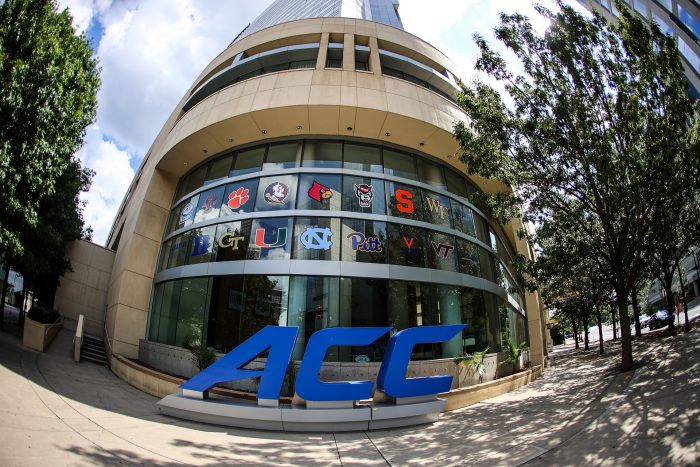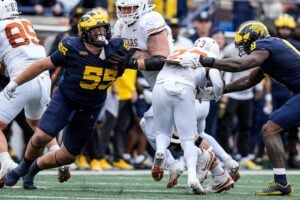The North Carolina judge who has been overseeing the ACC court cases has announced his retirement, effective January 2025.
Judge Louis Bledsoe III has been the judge in the ACC lawsuits against conference members Florida State and Clemson. The ACC is suing both schools for breach of contract. Both schools have filed lawsuits in their home states to try to get out of their contracts with the conference.
Judge Bledsoe’s Role in ACC Court Cases
Bledsoe is currently the Chief Business Court Judge in North Carolina. The court exists to handle particularly complex contract and business civil litigation. It has a panel of five judges in different court locations. The ACC is a plaintiff in a case against Florida State and against Clemson.
Judge Bledsoe has served on the court since 2014 when then-governor Pat McCrory appointed him. He has been the chief judge since 2018.
In the last four months, Judge Bledsoe has heard motions to dismiss the ACC lawsuits by defendants Florida State and Clemson.
In both cases, the issued rulings denying the schools’ motions. Florida State is appealing to the North Carolina Supreme Court. The ruling from the judge in the Clemson matter came late Wednesday. On Thursday, attorneys for Clemson filed notice with the Business Court that it also intends to appeal.
Schools Going to State High Court Over Judge Bledsoe’s Rulings
By North Carolina statute, because the cases are being heard in the complex business court, all other steps in the appellate process can be skipped. The cases can be filed directly to the state supreme court.
Clemson’s filing Thursday said its notice of appeal automatically triggers a stay in the current case in Judge Bledsoe’s court. That would mean that all other elements of the case come to a halt until the appeal is heard.
Last Word’s sources familiar with the Clemson legal strategy told us they are relying on the fact that Judge Bledsoe already granted Florida State’s motion for a stay for the same reasons. Based on precedent, they told us, they may have to file some paperwork but do not anticipate being required to have a hearing the way Florida State did.
The Jurisdiction Question
Prior to being appointed to the civil court bench, Bledsoe was a partner at the Charlotte law firm of Robinson Bradshaw, and Hinson. He has an undergrad degree in History from the University of North Carolina and is a 1984 law school graduate from Harvard.
The timing of Judge Bledsoe’s retirement all but guarantees he is done with both ACC cases. With both schools going to the state supreme court, it is unlikely those cases will be heard before next Spring, months after the judge’s retirement.
Judge Bledsoe has been a not-so-hidden advocate of folding all of the ACC/school cases into one jurisdiction…in North Carolina. In the Clemson hearing on July 2nd, he asked, only somewhat rhetorically, if the best interest of the system would not be better served by all the cases being in one court and one judge, instead of being subject to the interpretations of different judges in different states.
Who Will Hear the Cases Now?
With the retirement, it is expected that state court Chief Justice Paul Newby will appoint current business court judge Michael L. Robinson to replace Bledsoe as the chief judge of the court. Robinson has been on the business court panel of judges since 2016. He holds an undergrad degree in Economics from Davidson and a law degree from UNC.
He ran for a seat on the state supreme court in 2014 but was defeated by current justice Cheri Beasley.
It is to be determined if he will assume jurisdiction over the ACC cases or if it will be passed on to one of the judges on the panel. His courtroom is currently in Winston-Salem. It is assumed that the venue for the cases will remain in Mecklenburg County. The home venue has been a major part of the ACC’s legal arguments.







